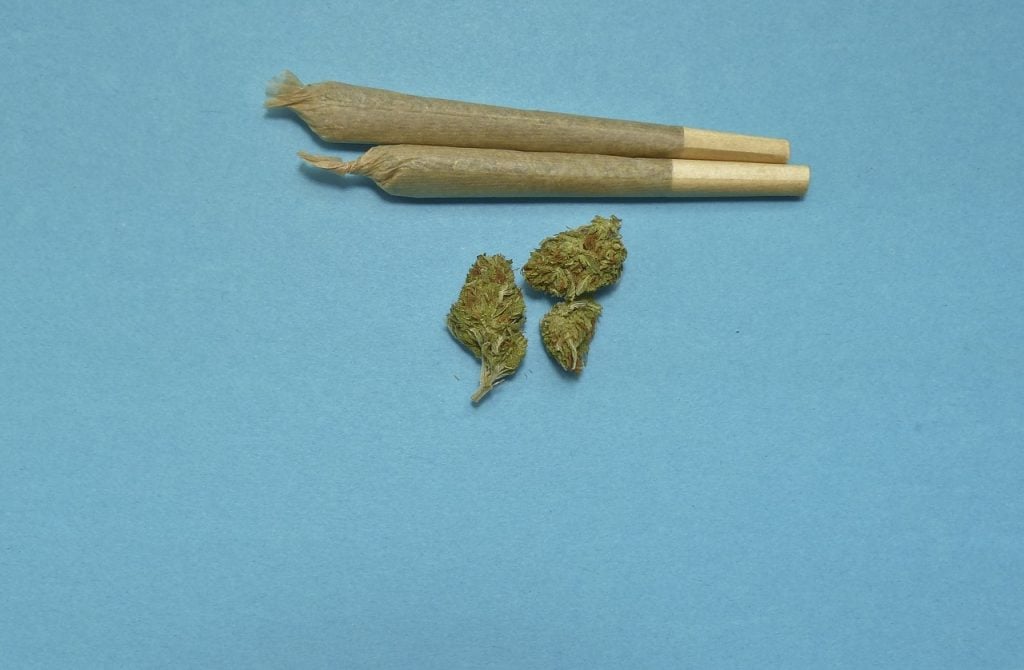As of August 2019, thirty-three states have legalized marijuana to some degree and eleven of those have legalized recreational use as well. As a matter of fact, after Michigan and Illinois begin sales in 2020, the U.S. government estimates that 29% of the country’s population will live in a state where recreational marijuana is legal. Media buzz is all about the astronomical financial boon this is creating for the individual states. However, the financial impact that marijuana legalization is having on our country isn’t all about financial gain. There is also a significant negative financial impact that is rarely discussed.
Recreational use is rapidly gaining ground across the nation with several states preparing to add the question as to whether recreational marijuana should be legalized on upcoming ballots. Illinois recently became the first state to legalize the drug without seeking public consent. Legislature voted to approve it entirely of their own accord. That can put a whole new spin on things from here on out.
Many employers wonder if they’ll, eventually, be left in the lurch.
Feds may bow out of marijuana legalization
Currently, the federal government chooses to look the other way regarding marijuana legalization. Even though marijuana carries a Schedule 1 classification by the DEA (US Drug Enforcement Agency), it has not compelled the feds to come down on states that legalize it. They have chosen instead to look the other way in passive silence.
The MORE Act passed through the House Judiciary Committee in November and has moved on to the Senate. If it passes there, the federal government will remove marijuana’s Schedule 1 classification.
Furthermore, if the STATES Act is pushed through, it, too, allows the federal government to bow out entirely. The Strengthening the Tenth Amendment Through Entrusting States Act specifically hands over the regulation of marijuana to each state. If a state does not legalize the drug, it’s all well and good, but those that have will not be interfered with.
Basically, employers feel it may become a free-for-all.
Upping the stakes
There is no doubt that states are raking in revenue. Nevada brought in a whopping $146.7 million dollars during the first quarter of the fiscal year. The state projects recreational sales to bring in $370 million for the fiscal year 2019. That doesn’t reflect medical marijuana sales at all.
If that wasn’t eye-opening enough since Colorado legalized recreational marijuana in 2014, total revenue collected for marijuana taxes, fees, and licensing topped out at $1,043,961,209.
It’s no wonder state governments are yielding to the push for legalization. Apparently, it’s all about the bottom dollar… even if one must stoop to acquire it.
Speaking of which, the SAFE Banking Act came to a vote in September 2019 and passed the House. If passed by the Senate, banks will have no qualms about opening accounts and giving loans to businesses in the marijuana industry.
Currently, only a hand full of banks have been brave enough to take on a business that is part of the industry. The federal government strictly regulates financial institutions. If the Secure and Fair Enforcement Banking Act passes there won’t be any federal regulation hanging over their heads.
Again, the phrase free-for-all comes to mind.
Banishment is harsh
Things are already getting sticky as far as business owners are concerned. For the time being, employers have the right to stand with their Federal Government in acknowledging marijuana as an illegal substance. Therefore, they have every right to keep marijuana on their employee drug testing panels.
Removing the classification is going to leave employers at the mercy of the state in which they do business regarding employee drug testing. This raises even more of a concern for companies that have a multi-state operation.
Both Nevada and New York City have a new law on the books to ban pre-employment drug testing. They are set to take effect in January and May 2020 respectively. If the marijuana trend continues, other cities and states are likely to follow suit.
This doesn’t bode well.
Employers and others against marijuana legalization fear this opens the door for further banishment eventually leaving employers no recourse regarding an employee’s marijuana use.
Highways and byways
In addition to multi-state operation concerns, further pre-employment banishment, and workplace safety issues, leaving marijuana regulation to individual states will involve the DOT (Department of Transportation) removing marijuana from its drug testing panel.
This seems like a ludicrous action, except no one’s laughing.
The government specifically speaks to the dangers of driving under the influence of marijuana.
Saying, in part, that the negative effects of marijuana on driving include:
- Increased lane weaving
- Poor reaction time
- Altered attention to the road
That doesn’t sound like someone who should be allowed to operate a big rig or even the company van for that matter!
Why employers need to test
In this age of self-entitlement, marijuana users rejoice in the strides being made in legalization and reform. Advocates for legalization feel continued drug testing is unfair because the drug’s metabolites stay in the system long past the point of impairment. However, where does that leave everyone else? Every employee is entitled to a drug-free working environment.
When an employee uses drugs:
- They are at increased risk of being in or causing an accident.
- They exhibit lower productivity.
- Employees are likely to be absent more often.
- Medical claims are increased.
Statistics show that in 2018, marijuana was the illicit substance detected the most often in workplace drug testing.
All these things combined cost employers around $81 billion per year. Granted, not all cost is incurred from marijuana users. However, the fact that it’s the drug detected most often proves it’s a large part of the problem.
Furthermore, we should think about the trickle effect. Employers pass the cost on to some degree in higher prices for goods and services.
The fact that marijuana legalization is so often promoted as a social justice issue is a guise. When looking at the big picture, it’s not.
It’s the legalization of a narcotic. A narcotic that is growing stronger as growers seek to constantly up the THC levels to increase prices.
In all truthfulness, marijuana’s ever-increasing THC levels null and voids previous studies on the long and short-term effects of the drug. In fact, current studies are showing increased signs linking to schizophrenia and other mental disorders. Further medical studies to discover the hidden dangers of this drug are needed.
Moreover, putting it bluntly, If pending legalization passes, the SAFE Banking Act is opening our financial institutions to becoming money launderers for drug cartels.
Yes, marijuana legalization is affecting our society.
However, the federal government needs to rub the dollar signs out of their eyes and put the well-being of we, the people, in plain sight.
Soon.
We can help them gain focus.
Contact your state and local government officials to make your thoughts known. Expressing concern over the removal of marijuana from employee drug screens is a start.











